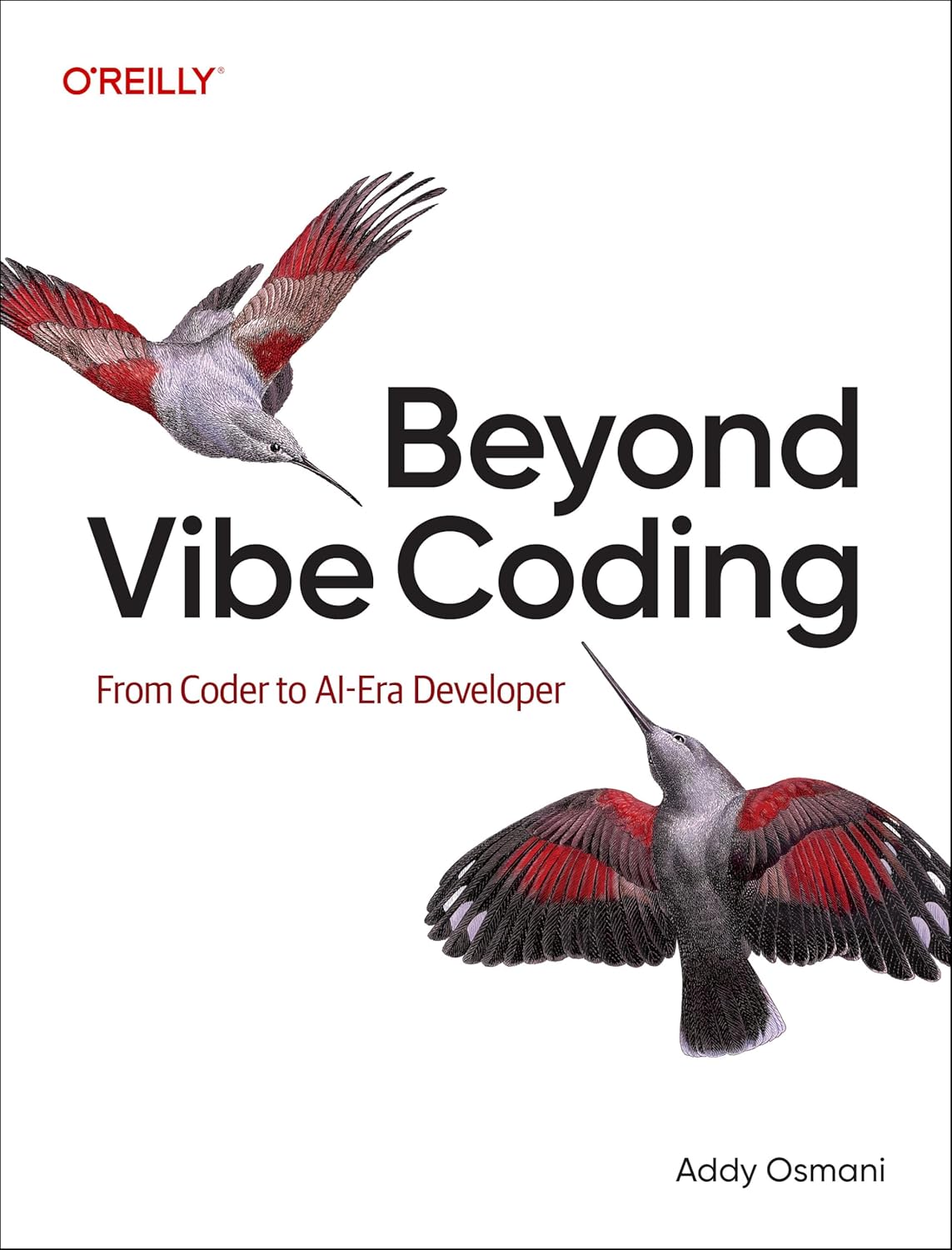6 posts tagged “addy-osmani”
2026
With enough users, every observable behavior becomes a dependency - regardless of what you promised. Someone is scraping your API, automating your quirks, caching your bugs.
This creates a career-level insight: you can’t treat compatibility work as “maintenance” and new features as “real work.” Compatibility is product.
Design your deprecations as migrations with time, tooling, and empathy. Most “API design” is actually “API retirement.”
— Addy Osmani, 21 lessons from 14 years at Google
2025
Beyond Vibe Coding. Back in May I wrote Two publishers and three authors fail to understand what “vibe coding” means where I called out the authors of two forthcoming books on "vibe coding" for abusing that term to refer to all forms of AI-assisted development, when Not all AI-assisted programming is vibe coding based on the original Karpathy definition.
I'll be honest: I don't feel great about that post. I made an example of those two books to push my own agenda of encouraging "vibe coding" to avoid semantic diffusion but it felt (and feels) a bit mean.
... but maybe it had an effect? I recently spotted that Addy Osmani's book "Vibe Coding: The Future of Programming" has a new title, it's now called "Beyond Vibe Coding: From Coder to AI-Era Developer".
This title is so much better. Setting aside my earlier opinions, this positioning as a book to help people go beyond vibe coding and use LLMs as part of a professional engineering practice is a really great hook!
From Addy's new description of the book:
Vibe coding was never meant to describe all AI-assisted coding. It's a specific approach where you don't read the AI's code before running it. There's much more to consider beyond the prototype for production systems. [...]
AI-assisted engineering is a more structured approach that combines the creativity of vibe coding with the rigor of traditional engineering practices. It involves specs, rigor and emphasizes collaboration between human developers and AI tools, ensuring that the final product is not only functional but also maintainable and secure.
Amazon lists it as releasing on September 23rd. I'm looking forward to it.

Double-keyed Caching: How Browser Cache Partitioning Changed the Web (via) Addy Osmani provides a clear explanation of how browser cache partitioning has changed the landscape of web optimization tricks.
Prior to 2020, linking to resources on a shared CDN could provide a performance boost as the user's browser might have already cached that asset from visiting a previous site.
This opened up privacy attacks, where a malicious site could use the presence of cached assets (based on how long they take to load) to reveal details of sites the user had previously visited.
Browsers now maintain a separate cache-per-origin. This has had less of an impact than I expected: Chrome's numbers show just a 3.6% increase in overall cache miss rate and 4% increase in bytes loaded from the network.
The most interesting implication here relates to domain strategy: hosting different aspects of a service on different subdomains now incurs additional cache-related performance costs compared to keeping everything under the same domain.
2023
The real value in evolving as an engineer isn't solely about amassing a heap of isolated skills but weaving them into an intricate web of abilities that's greater than the sum of its parts.
Write about what you learn. It pushes you to understand topics better. (via) Addy Osmani clearly articulates why writing frequently is such a powerful tool for learning more effectively. This post doesn’t mention TILs but it perfectly encapsulates the value I get from publishing them.
2022
Becoming a good engineer is about collecting experience. Each project, even small ones, is a chance to add new techniques and tools to your toolbox. Where this delivers even more value is when you can solve problems by pairing techniques learned on one project with tools learned working on another. It all adds up.